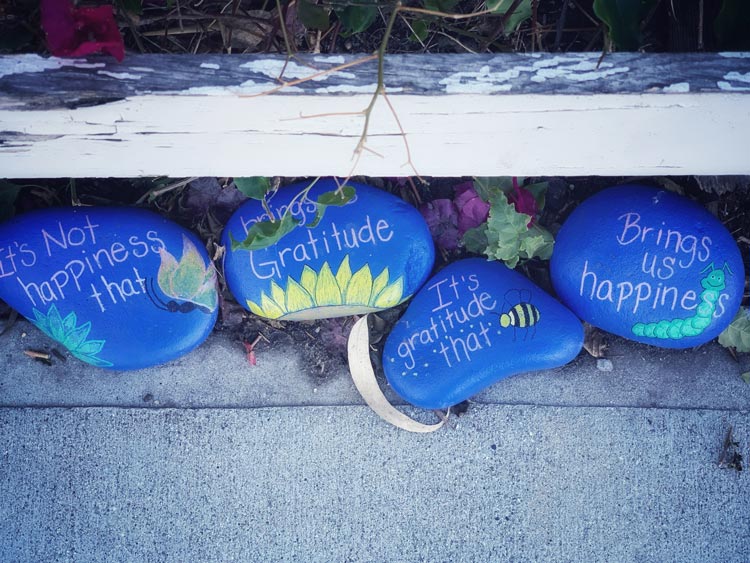What do you want to learn more about?
Cultivating Gratitude in Professional Settings and Communities

As we head into the holiday season, many of us celebrate with family and friends. At the same time, we are nearing the end of the year. These events lead us to reflect on what we are grateful for; it’s a timeless practice that can profoundly impact our lives, workplaces, and communities.
As an immigration evaluation therapist, I’ve witnessed the transformative power of giving thanks to the lives of immigrants and refugees by inviting them to be part of our broader communities and helping them feel settled in the new places they call home.
I’d like to explore the significance of gratitude in our multicultural communities and workplaces, its benefits, and how we can integrate this practice into our professional services.
The Importance of Gratitude
I know you’ve likely read or heard about the role of gratitude – it’s hard to miss this important message in a world filled with gratitude journals in every shop!
But I always find it worthwhile revisiting some reasons why we shouldn’t let giving thanks slip our minds. It helps me to remember that there’s real power in the kindness we show others:
- Positive Mental and Emotional Well-being: Expressing gratitude cultivates a positive mindset, enhancing mental health by reducing stress and anxiety. When individuals acknowledge and appreciate the positive aspects of their lives, they shift their focus from what’s lacking to what’s abundant.
- Strengthening Relationships: Thankfulness fosters stronger interpersonal connections by creating an atmosphere of appreciation and mutual respect. When people feel valued and recognized, they are more likely to engage with others in a positive and meaningful way.
- Enhanced Resilience: Gratitude acts as a buffer against adversity, empowering individuals to navigate challenges with a resilient spirit. It allows for a perspective that acknowledges growth and learning even under challenging circumstances.
The Role of Gratitude in Our Multicultural Communities
The holiday season can be a time of reflection and an opportunity to consider how we show up – for our family and friends, work colleagues, clients, and wider community.
I’ve loved to see the holiday season as a chance to reflect on some of my core values and why I do the work I do. It’s no secret that immigrants face many challenges when they move to the US, and while my work is only one piece of the puzzle that can offer support, I know that many of you are here because you feel the same as me – you want to help.
As our shared communities become ever more diverse in wonderful ways, gratitude serves to help us all:
- Promote Inclusivity: In diverse modern communities, expressing gratitude can bridge cultural and language barriers. Gratitude is a universal language that unites people, encouraging empathy and understanding among community members.
- Foster Social Cohesion: Gratitude rituals, such as communal meals or sharing stories, bring community members together. These shared experiences strengthen bonds and create a sense of belonging and unity.
- Encouraging Volunteerism and Philanthropy: Gratitude motivates individuals to give back to their communities. Recognizing the blessings they have received, people often engage in acts of kindness, volunteerism, and philanthropy to support those in need.
Integrating Gratitude into Professional Practice
Every year, I get the warm fuzzy feels around the holidays, and I see it as my chance to renew my commitment to ensuring that giving thanks and expressing my gratitude is something I keep as a regular practice.
Here are a couple of ways I aim to do that:
- Say it Out Loud: Our days are often crammed with one thing after another; it’s easy to let gratitude slip away from us – and when this happens, it’s even easier to feel guilty for not doing it! Something I try to do is to voice my thanks as and when it happens – even for the small things. Whether it’s saying thanks to my dog for listening to a command the first time or a colleague for doing that one thing they always do, that makes my work so much easier – by voicing thanks regularly, it becomes a muscle we keep leaning into.
- Building a Gratitude Ritual: Establishing a gratitude ritual within the workplace could be as simple as inviting colleagues to spend time talking about what they’re grateful for. This could be weekly or monthly, done face to face or in a more informal social way. Do it in a way that feels authentic and beneficial for your workspaces.
Final Thoughts
As therapists, incorporating gratitude into our professional services can empower our clients to embrace gratitude as a powerful tool for healing and growth.
We contribute to a happier, healthier, and more compassionate world by recognizing and appreciating the good in our lives.
Wishing you, your families, and communities a peaceful and happy holiday season!

I’m Cecilia Racine, and I teach therapists how to help immigrants through my online courses. As a bilingual immigrant myself, I know the unique perspective that these clients are experiencing. I’ve conducted over 500 evaluations and work with dozens of lawyers in various states. Immigrants are my passion, I believe they add to the fabric of our country.
related articles
Helping Immigrants Find Safety and Healing Through U and T Visas
As mental health clinicians, we possess a unique set of skills that can be a…
Expand Your Expertise: Recommended Trainings for Immigration Clinicians
The Immigration Evaluation Institute Comprehensive course is a great first step into the world of…
Ethical Considerations in Immigration Evaluations
The role of mental health professionals in immigration evaluations is fraught with unique ethical complexities.…
Join the Free
Immigration evaluation
therapists facebook group
Are you a therapist that conducts immigration evaluations?



